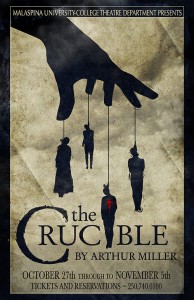Today is the day Wikipedia, Reddit, Craigslist and a handful of other familiar online sites are protesting the two bills before the House and Senate, SOPA and PIPA, respectively. If you visit any of them, you will see something like what Wikipedia has on its site today:
SOPA (Stop Online Piracy Act) and PIPA (Protect Intellectual Property Act) were first introduced to the House in late October 2011, with three large organizations behind it: the MPAA, the Recording Industry Association of America, and the U.S. Chamber of Commerce. The entertainment industry, who are sick and tired of seeing their hard work stolen and sold online by foreign digital media pirates, are looking for a means of punishing digital thieves — and keeping more profits for themselves.
While the intention behind the bills is good, the execution so far is short-sighted and deeply flawed. Obviously, no one wants to have his or her hard creative work stolen and then used for personal gain. But should these bills as they are written get passed, the Internet as we know it will be gone for good.
The Irony of SOPA and PIPA
We have a long history with freedom of speech and censorship in this country, with the arts and entertainment industry a long-suffering victim at the center of that history. This is what makes SOPA and PIPA so ironic. In an effort to protect their products from unlawful use and distribution, the entertainment industry is essentially throwing a huge censorship blanket over anyone who shares information on the Internet, including themselves! What they hold so dear — the freedom of expression — SOPA and PIPA would destroy.
The Timing of SOPA and PIPA
 It’s no coincidence that SOPA and PIPA are happening at this point in time. Censorship cases have a funny way of showing up during major cultural and economic shifts, both of which we are experiencing right now. Fear, paranoia, and finger-pointing are no strangers during strained economic times, giving rise to irrational thought processes and behavior.
It’s no coincidence that SOPA and PIPA are happening at this point in time. Censorship cases have a funny way of showing up during major cultural and economic shifts, both of which we are experiencing right now. Fear, paranoia, and finger-pointing are no strangers during strained economic times, giving rise to irrational thought processes and behavior.
Arthur Miller explored this theme in his play about the Salem witch trials, The Crucible, which he happened to write during the height of McCarthyism. When groups of people feel threatened and out of control, they look for something — anything — to blame. In the case of SOPA and PIPA, the Internet is an easy scapegoat, the entertainment industry’s John Proctor.
But we all know the Internet, like John Proctor, is the wrong target. Thankfully, unlike the ending of Miller’s play, I don’t think SOPA and PIPA will get far enough to hang the wrong person. But if we aren’t careful, and don’t pay attention, we may very well suffer some collateral damage.
Scapegoating Is Never the Answer
No one would disagree that Internet piracy is a huge problem. But SOPA and PIPA are not the solution to it. Neither is blaming the Internet for economic losses. The Internet did not cause our current economic turmoil despite what some people might want to believe. No, our economic problems have roots that started to grow long before the Internet showed up.
The bright spot to SOPA and PIPA is seeing so many people who depend upon the Internet for their livelihood taking an interest in political matters and organizing to address the problem in a way that doesn’t thwart our freedom of expression online. Along with our long history of censorship, we also have a long history of collective action to solve big problems. When it really matters, Americans have a way of coming together and fighting for what we know is right.
I have every reason to believe we will rise to the occasion again and wisdom will prevail.
———-
There are plenty of terrific posts out there that go into details about both SOPA and PIPA and I encourage you to read several of them, if only to become more informed. Here are a handful of articles I recommend:

